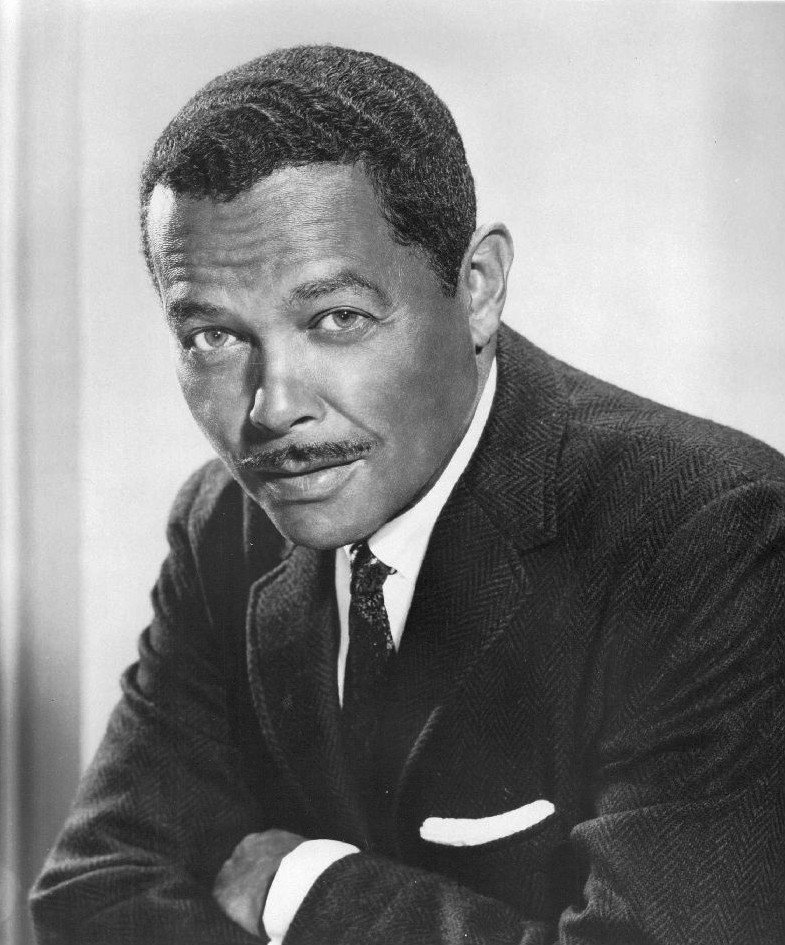Artist: Billy Eckstine
Billy Eckstine was an American jazz and pop singer and a bandleader during the swing and bebop eras. He was noted for his rich, almost operatic bass-baritone voice.
In 2019, Eckstine was posthumously awarded the Grammy Lifetime Achievement Award "for performers who, during their lifetimes, have made creative contributions of outstanding artistic significance to the field of recording." His recording of "I Apologize" (MGM, 1951) was given the Grammy Hall of Fame Award in 1999.
In Chicago, Illinois, Eckstine joined Earl Hines' Grand Terrace Orchestra in 1939, staying with the band as vocalist and trumpeter until 1943. By that time, Eckstine had begun to make a name for himself through the Hines band's juke-box hits, such as "Stormy Monday Blues", and his own "Jelly, Jelly".
In 1944, Eckstine formed his own big band, and it became the finishing school for adventurous young musicians who would shape the future of jazz, including Charlie Parker, Dizzy Gillespie, Dexter Gordon, Gene Ammons, Miles Davis, Art Blakey, Cecil Payne, Fats Navarro, Lucky Thompson, John Malachi, Sarah Vaughan, Pearl Bailey, and Lena Horne. Tadd Dameron, Gil Fuller and Jerry Valentine were among the band's arrangers. The Billy Eckstine Orchestra is considered to be the first bebop big-band, and had Top Ten chart entries that included "A Cottage for Sale" and "Prisoner of Love". Both were awarded a gold disc by the RIAA.
Dizzy Gillespie, in reflecting on the band in his 1979 autobiography To Be or Not to Bop, gives this perspective: "There was no band that sounded like Billy Eckstine's. Our attack was strong, and we were playing bebop, the modern style. No other band like this one existed in the world."
Eckstine became a solo performer in 1947, with records featuring lush, sophisticated orchestrations. Even before folding his band, Eckstine had recorded solo to support it, scoring two million-sellers in 1945 with "Cottage for Sale" and a revival of "Prisoner of Love". Far more successful than his band recordings, these prefigured Eckstine's future career. Eckstine would go on to record over a dozen hits during the late 1940s. He signed with the newly established MGM Records, and had immediate hits with revivals of "Everything I Have Is Yours" (1947), Rodgers and Hart's "Blue Moon" (1948), and Juan Tizol's "Caravan" (1949).
Eckstine had further success in 1950 with Victor Young's theme song to "My Foolish Heart," and the next year with a revival of the 1931 Bing Crosby hit, "I Apologize". His 1950 appearance at the Paramount Theatre in New York City, drew a larger audience than Frank Sinatra at his Paramount performance.
Further information about Billy Eckstine is found here and here.
Photography credit: Coast Artists/Milton Deutsch (management), Public domain, via Wikimedia Commons
This content was excerpted from the Wikipedia article, https://en.wikipedia.org/wiki/Billy_Eckstine, which is released under the Creative Commons Attribution-Share-Alike License 3.0 (https://creativecommons.org/licenses/by-sa/3.0/).
Billy ECKSTINE & His Orchestra " Rhythm In A Riff " !!!
Billy Eckstine: Videos
Sarah Vaughan & Billy Eckstine "Passing Strangers" on The Ed Sullivan Show
" HARLEM AFTER MIDNIGHT " 1947 JAZZ VOCALIST BILLY ECKSTINE AFRICAN AMERICAN BIG BAND XD13524



